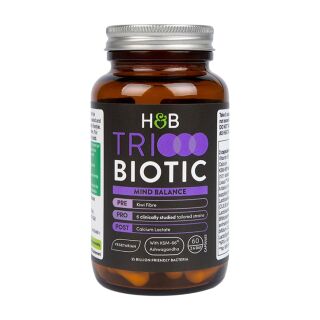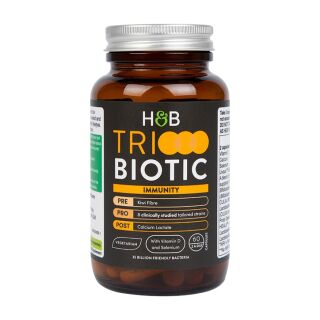Did you know that we live with around 40 trillion bacteria, whose integrity plays an integral role in our physical and mental health? And yet... 40 trillion bacteria reside in various parts of our body, such as the digestive tract, as well as the oral and vaginal cavity. The survival and health of these bacterial strains - which outnumber our body cells (about 30 trillion) – very much determines how healthy we are!
Gut microbiome - intestinal microflora
Our gut is home to both good and less good bacteria, the balance of which is the key to our healthy functioning. The total of good and 'bad' - or less good - bacteria make up our intestinal microflora - or our gut microbiome. A healthy body is mostly made up of more good than "bad" bacteria, while a prone – to –disease organism is characterized by a majority of "bad" bacteria, which puts a threat to the health of the individual.
What are probiotics?
Probiotics are living non-pathogenic microorganisms ("good bacteria") that contribute to the growth and diversity of our intestinal microflora, having a beneficial effect on the health of our gastrointestinal tract - and beyond. A healthy gastrointestinal tract is a prerequisite for our overall health. How is this done? Numerous studies have confirmed the role of the gut microflora in various aspects of our health, including:
- Improving the quality of the intestinal barrier, allowing for a much more efficient absorption of nutrients and removal of toxic waste.
- The synthesis of vitamin K and a number of antimicrobial substances.
- The overall support of a healthy immune system and the effective treatment of pathogenic microorganisms. Consider that about 70% of defense cells are produced in the gut!
- To support memory, concentration and the general health of our brain. The old saying that the gut is "our second brain" seems to be true as there is a gut-brain axis through which millions of "messages" are exchanged daily, with the scientific community continually confirming that the health of our gut is a prerequisite for a strong & calm brain!
- The efficient functioning of our metabolism.
- The health of our skin.
Therefore, the diversity and survival of friendly bacterial strains is key to our overall health. So what can we do to support their survival so that they continue to “work” for us? Provide them with their favorite "treats", which are no other than prebiotics, a term you've surely heard and - perhaps - may have confused with the term probiotics. Prebiotics are certain types of fibre, found in a variety of plant foods such as apple, banana, oats, onion, garlic etc and are in fact the 'food' of probiotics so they are absolutely essential for their healthy growth. In addition, another way to help increase probiotics is to enrich our diet with foods rich in probiotics, such as traditional Greek yoghurt, kefir, fermented cheese, and kombucha, but also to increase probiotic intake, through dietary supplements.
When do I need to consider taking probiotics?
As we saw above, probiotics - along with prebiotics - improve many aspects of our daily lives. Probiotic supplementation has grown exponentially in recent decades, as they are a perfectly safe option, in situations such as:
- Irritable Bowel Syndrome (Their administration is recommended for at least 8 weeks, with emphasis on specific bacterial strain).
- Inflammatory bowel disease, with Crohn's disease being a prime example.
- Intense Diarrhea.
- Chronic Constipation.
- Lactose intolerance.
- Stomach disorders such as, stomach ulcers or pathogenic infections such as, H.Pylori infection.
But also in conditions, not related to the gastrointestinal tract, such as:
- Intense Anxiety / Anxiety.
- Frequent use of antibiotics.
- Urinary Tract Infections (UTI) (Vaginitis / Urinary Tract Infection / Frequent Fungal Infections in the vaginal area). In these cases, a probiotic supplement with cranberry extract is an excellent choice.
- Cardiovascular disorders - even at elevated cholesterol levels.
- Mental health disorders, such as depression.
Let me say that our gut microbiome is - perhaps - one of the most important organs in the human body, working silently and unceasingly, trying to protect us and work for us. However, it is up to us to protect it first, by improving the quality of our diet, adding variety to our food choices rich in prebiotics and probiotics, reducing stress and choosing the type of exercise we enjoy. Holland & Barrett provides us with a variety of probiotic supplements for adults and children, as well as fiber-rich foods, contributing to the development of a healthy gut microbiome, which can serve our unique individualized needs.






























